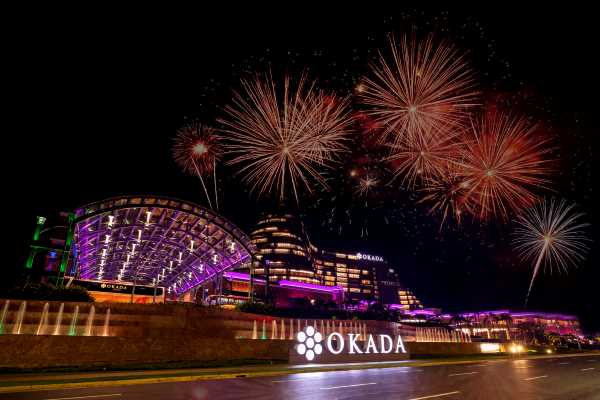As COVID-19 restrictions begin to ease up, the gambling market in the Philippines is demonstrating a sharp year-over-year recovery.
Naturally, legal sports betting has gone up considerably lately, with major domestic and international leagues resuming mostly uninterrupted activities. For example, the 2021 PBA Governors’ Cup is back up and running, and the games have so far been contested without issue.
As of February 9, the standings look like this, with six teams having already punched their tickets to the quarterfinal round:
- Magnolia Hotshots 9-2 (twice-to-beat)
- NLEX Road Warriors 8-3 (twice-to-beat)
- San Miguel Beermen 7-4 (bracket status TBA)
- Meralco Bolts 6-4 (bracket status TBA)
- TNT Tropang Giga 6-4 (bracket status TBA)
- Barangay Ginebra San Miguel 6-5 (bracket status TBA)
- Alaska Aces 6-5 (playoff status TBA)
- NorthPort Batang Pier 5-5 (playoff status TBA)
- Phoenix LPG Fuel Masters 5-5 (playoff status TBA)
- Rain or Shine Elasto Painters 3-8 (eliminated)
- Terrafirma Dyip 2-9 (eliminated)
- Blackwater Bossing 1-10 (eliminated)
Of course, sports gambling – while it turns a large handle in the Philippines – is not the main driver of the gambling industry.
Even larger than sabong/e-Sabong – which takes in more wagers and earns more revenue per month than all Las Vegas sports betting combined – casino gambling is where the money is.
Ironically, of course, brick-and-mortar casino gambling in the Philippines is limited to players of so-called VIP status. It is common practice in the country for retail Manila casinos and other PAGCOR-licensed properties to only allow players that qualify financially as among the top tier of earners.
This, presumably, is to reserve most retail gaming floor space for travelers and tourists, but it’s also ostensibly to combat potential gambling addiction issues and how they might impact the larger Philippine economy if left unchecked.
Nevertheless, the upshot is simply that – domestically – the vast majority of gamblers in the Philippines participate in the pastime via legal offshore casinos.
And naturally, the revenues earned by these businesses is untaxed. In other words, the Philippine government only realizes tax gains from domestic vendors who do comparatively limited business.
Still, that business is finally picking back up.
Before the coronavirus pandemic, the Philippines was primed to overtake Macau as the largest destination gambling hub in Southeast Asia. However, after Manila casinos were shuttered or otherwise capacity-restricted for most of 2020 and much of 2021, that trajectory was derailed a bit.
Now, though, it seems like everything’s back on track.
PAGCOR just released its complete 2021 earnings report, and the gaming industry’s revenue figures are up 14.5% from 2020. Total earnings are reported at PHP 131 billion (US $2.2 billion), with a quarterly breakdown as follows:
- Q1 2021 – PHP 30 billion (US $582 million)
- Q2 2021 – PHP 21.7 billion (US $421 million)
- Q3 2021 – PHP 26.9 billion (US $505 million)
- Q4 2021 – PHP 34.5 billion (US $670 million)
As you can see, the quarterly earnings align with the state of lockdowns in the nation, with Q4 representing the most open marketplace since COVID began, while Q1 benefited from temporarily lifted restrictions at the beginning of the year.
Per Gambling News, Entertainment City is the biggest mover and shaker for the industry in terms of gross gaming revenue (GGR), which is to be expected:
[Philippine] licensed casinos have reported a total of PHP 88.4 billion ($1.7 billion) in GGR during 2021. Breaking down the total shows that Entertainment city has reported PHP 78.9 billion ($1.5 billion) in GGR last year, while Clark reported PHP 8.7 billion ($169 million). In contrast, Fiesta has seen only PHP 668 million ($13 million) in GGR during 2021.
In the case of the Okada Manila casino particularly, its strong earnings in 2021 should go a long way toward driving up its stock price once the venue is listed on the Nasdaq big board later this year.
The investment enthusiasm around the brand isn’t based only on its year-over-year recovery, but also on global demand for gambling as casino markets the world over come out of the pandemic.
Per Forbes:
[The Okada Manila] resort said in January that total revenue increased 24% to $399.6 million in 2021 from the previous year, bolstered by strong gaming revenues particularly in the fourth quarter as well as contributions from its retail, entertainment and dining outlets. Okada Manila’s Tokyo-listed parent Universal Entertainment said last month the Philippine property narrowed its operating loss to 1.87 billion yen ($16.3 million) last year from a loss 9 billion yen in 2020.
…
“Coming out of the pandemic, there’s tremendous pent-up demand, not just in the Philippines, but also in Macau and throughout the region,” Jason Ader, chairman and CEO of 26 Capital, said… “We saw evidence of that last year in Las Vegas, which had its absolute best year ever, with no business travel and convention travel.”
Things are finally starting to look up!

